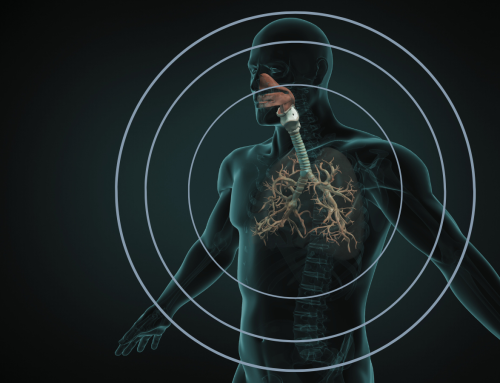Public Health England have been running their annual “Catch it. Bin it. Kill it” campaign for the last few weeks and it’s an important message: when it comes to spreading germs, prevention is better than cure! In the case of spreading germs and the illnesses they can cause this means avoiding the transfer of nasty bugs so that people don’t spread them and pass their illness onto others.
This is especially crucial for people who have lung conditions, or those vulnerable to infection, where viruses or bacterial infections can be particularly harmful.

Let’s begin though by going back to basics…
The dreaded spreading germs
Spreading germs mostly happends through the air in coughs, sneezes or even just by breathing. They can also be spread in saliva, sweat and blood. Germs are then transferred from person to person by touching any contaminated surfaces and then ingesting the germs.
How to stop the spread
The overriding message is to be aware of every single surface, and the fact that it could be contaminated, leading to you spreading germs:

-
It starts with you! There are a number of steps you can take to minimise germ transmission. It’s very important to do the following if you have a cold or flu:
-
Ensure you always properly wash your hands to prevent the spread of infections.
-
Use a tissue to cover coughs and sneezes or if you don’t have one to hand, use the crease of your elbow. It really is a case of catch it, bin it to kill it!
-
Make sure tissues and hand cleaners are easily accessible and that you use them regularly. Hand sanitisers are particularly effective against many viruses (they don’t work to combat norovirus though).
-
Try not to cough or sneeze into your hands – use a tissue!
-
Try to avoid touching your eyes, nose and mouth with your fingers.
-
Make sure you’re up to date with your immunisations such as the flu vaccine – especially if you have a lung condition.
-
-
Keep your distance Be mindful of being around other people. Avoid large crowds if possible as you’ll be exposing yourself to greater numbers of germs. If visiting friends or family warn you that they’re ill then it’s probably best to ask them to visit another time. It’s best to minimise your chances of picking up their illness.
-
Surfaces: every surface is one to watch! From kitchen worktops to chopping boards, wooden floors to carpets, toilets to bathroom sinks – each and every surface could harbour all sorts of germs. Clean them all regularly, using soap and water to wash the germs away, or to be even more certain of eradicating them, use a disinfectant to kill them.
-
And it’s not just those surfaces: there are so many other things to be aware of. Mobile phones, keyboards, toys and even your handbag are all areas which are known to be the perfect vessels for spreading germs. This article even revealed that the average oven door has more bacteria on it than a toilet seat!
-
Cleaning materials: also be aware of what you’re cleaning your surfaces with. Cloths, tea towels, washing up brushes and mops could just be transferring germs from one surface to another. They should all be cleaned regularly, ideally by washing at 60C to kill any bacteria.
The complication of having a lung condition

Being exposed to bacteria that causes flu can be dangerous for anyone – but it’s even more dangerous if you have a lung condition. For example, someone with COPD or asthma already experiences inflamed, narrowed airways and damaged air sacs and has a reduced ability to be able to clear bacteria, dust, and other pollutants from the airways. As a result, they are at a much greater risk of developing lung infections such as pneumonia and the risk of further complications also increases. Recurring lung infections can cause more damage to the lungs, which can be particularly problematic in conditions such as bronchiectasis. Respiratory physiotherapy is crucial for any patient who is at increased risk of getting a chest infection as it will help prevent and clear up any infection, preventing further damage to the lungs. Remember, germs love to breed in chest secretions so keeping your chest as clear as possible is very important.
Spot the difference
So how do you know when your cough isn’t just your usual asthma or COPD?

You may experience the symptoms of breathlessness, wheezing and coughing on a daily basis so knowing when it’s something more serious is important. You will no doubt be familiar with how your symptoms usually feel – for example, you may commonly suffer with a dry cough that irritates your throat when you have asthma – so if you feel like your cough is located more in your chest and feels “wetter” then this could indicate that you have something more serious.
Watch out for these symptoms that could indicate you have a chest infection:
-
Fatigue
-
Sore or scratchy throat or pain when swallowing
-
Headaches, unusual sinus drainage, nasal congestion or tenderness along the upper cheekbones
-
Wet, chesty cough
-
Lots of thick yellow or green phlegm that could smell
-
Chest discomfort or pain
-
Aching muscles
-
A high temperature of 38 degrees or above
It can be difficult to properly determine because some of the symptoms could just be because you have a cold but if you have a lung condition, it’s very important to be vigilant so if in doubt, please see a doctor and get the right treatment quickly if needed.

For some top tips on how to stay well in winter don’t miss our previous blog with lots of useful advice on maximising your chances of staying well, as well as how to stay active when you have a lung condition.
The bottom line is that prevention is so much better than cure for everyone. For people with lung conditions it’s even more important to avoid it and take precautions where possible!





